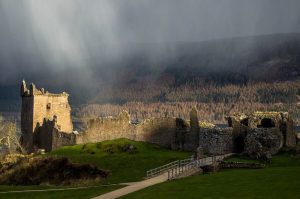Sometimes known as The Feast of Dedication, or The Festival of Lights, Chanukah stands out among the celebrations in the Bible as it does not appear in the Feasts of the Lord in Leviticus 23, however it is mentioned in other scriptural passages.
As a backdrop to understanding more about this holy day, we need to go back to 167 BC into Israel’s history, when the Jewish people were living under an oppressive foreign control. The Greeks were in power under the leadership of Alexander the Great, who had supposedly united the ancient world into a common government and culture called Hellenism. However, due to Alexander’s untimely death, there was a massive political power struggle between four generals. The Ptolemies took control of the South (including Egypt), the Seleucids took charge of the northern area around Syria. Judea was caught in the middle and eventually occupied by The Seleucids under the leadership of Antiochus IV.
In an effort to secure his power, Antiochus enforced a policy of assimilation into the predominant Hellenistic culture – and regardless of the culture or beliefs of the captured peoples, the Seleucids required submission to the Greek way of life. To be truly effective, this had to apply to all aspects of life – language, the arts, religion and so forth. There are some parallels to be drawn from the situation the Jewish people were thrown into then and the global situation of today. Back in 167 BC, this assimilation was not considered to be a major problem and many people under the Seleucids were compliant with the Greek culture. However, there were a significant number of traditional Jews who were appalled at the changes in their society resulting in Antiochus and the Seleucids enforcing an ultimatum on the Jewish community: either the community must give up its distinctive customs (Shabbat, kosher laws, circumcision etc..) or die. And to this end, Antiochus marched into Jerusalem and desecrated the holy Temple, which included the altars, the utensils and the golden menorah, but not only that, Antiochus then ordered that a pig be sacrificed on the holy altar and erected an image of the Greek god Zeus as the new point of worship in the Temple! He also insisted on being called ‘Epiphanes,’ which means God manifest – this was repulsive to any religious Jew. However, the Jewish community decided to call him Antiochus ‘Epimanes,’ meaning crazy man!
This brutal attack on the Jewish people sparked rumours of revolts in Judea and became focussed in a small village called Modi’in. When troops entered the village, they were met with defiant resistance led by a godly priest named Mattathias along with his five sons. When the Seleucid soldiers chose to lead a pagan ceremony in the village, Mattathias and his sons dispatched the soldiers and started an uprising against the oppressors. One of the sons, Judah, rose to leadership and was nicknamed ‘Maccabee’ (meaning hammer). Totally outnumbered in the natural the Maccabees met with remarkable success, having complete faith and trust in the God of Israel, proving that the impossible could happen. In the Hebrew month of Kislev (around December), they drove out the Syrians (Seleucids) and recaptured the Temple.
The task now was restoring the Temple which was in an appalling state. The altars and holy furnishings were cleansed and restored. The broken menorah was particularly important as it symbolised the light of God. When they came to relight it, they had to search for specially prepared oil, but found there was only enough for one day. The priests knew that it would take at least eight days for new oil to be produced, but decided that it had to be lit, so they went ahead and lit the menorah – at least the light of God would shine immediately. To their amazement, the oil burned for eight days, until more oil had been produced. The Temple was restored and rededicated to the glory of the God of Israel and an eight day festival established – now called Chanukah (meaning Dedication in Hebrew).
A miracle had occurred! Not only did the menorah stay alight for eight days, but the Jewish nation had been saved by the courage of Judah Maccabee and his army. Had Antiochus succeeded, it is possible that there would have been no Jewish people around, centuries later, by the time of Yeshua. This is an important Biblical fact as the Temple that was recaptured by the Maccabees was the same Temple in which Yeshua observed and celebrated Chanukah. We read about this in John 10:22-23:
At that time the Feast of Dedication (Chanukah) took place at Jerusalem; it was winter and Yeshua was walking in the Temple in the portico of Solomon (John 10:22-23)
So what relevance has this festival to us today? It speaks of the deliverance of Israel from its oppressors, and we see clearly God providing during a very turbulent time for the Jewish people. We can also see the prophetic significance as shown in The Book of Daniel chapter 8:21-22:
And the shaggy goat represents the kingdom of Greece, and the large horn that is between his eyes is the first king. And the broken horn and the four horns that arose in its place represent four kingdoms which will arise from his nation, although not with his power.
The above verses give a description of the rise of the Hellenistic, Seleucid Empire with its strong leader depicted by the large horn (Alexander the Great). But this horn breaks with the premature death of Alexander and four other horns rise in its place – the four empires, one led by Antiochus IV. So this story is significant because of another testimony of the survival of Israel as a nation, but also because of the miracle power of God demonstrated so clearly.
Let’s keep believing God for more miracles and for a remarkable manifestation of his power in these exciting and exhilarating days in which we live.
Laurence Sharman is the Executive Director of the World Prayer Centre.




